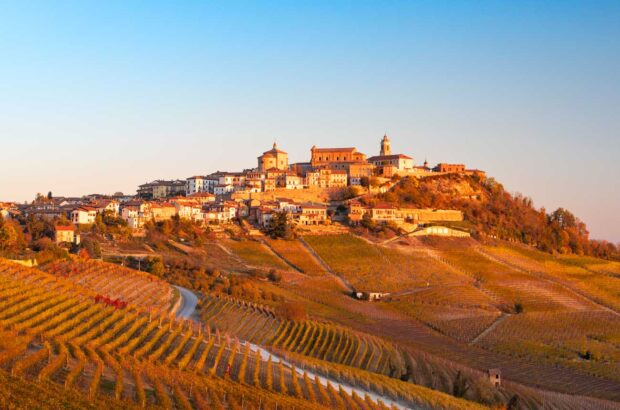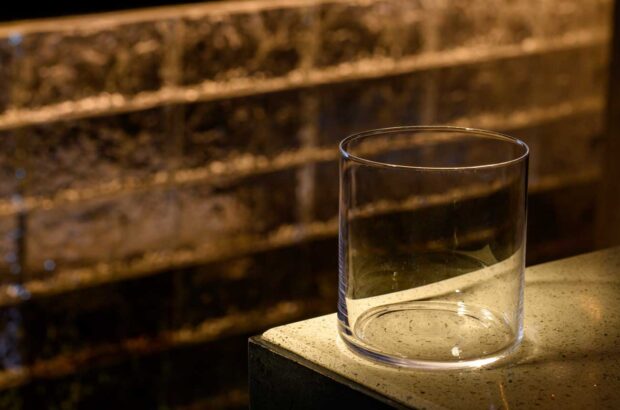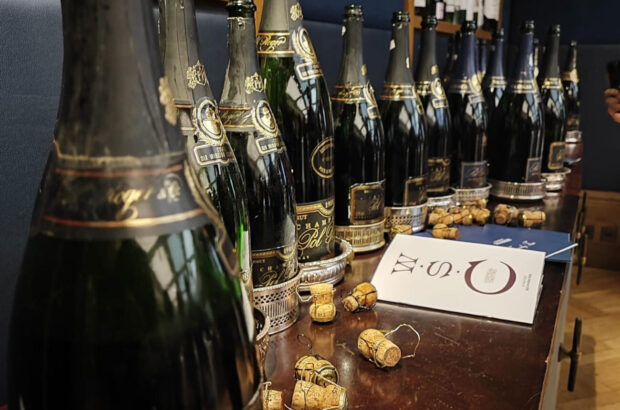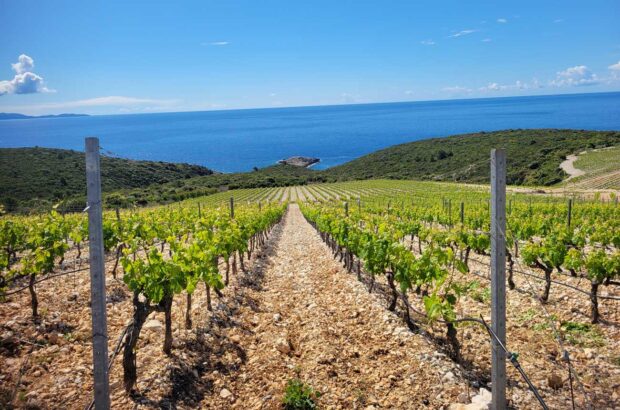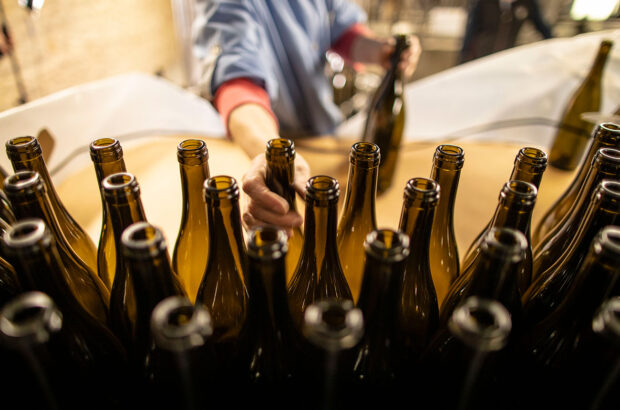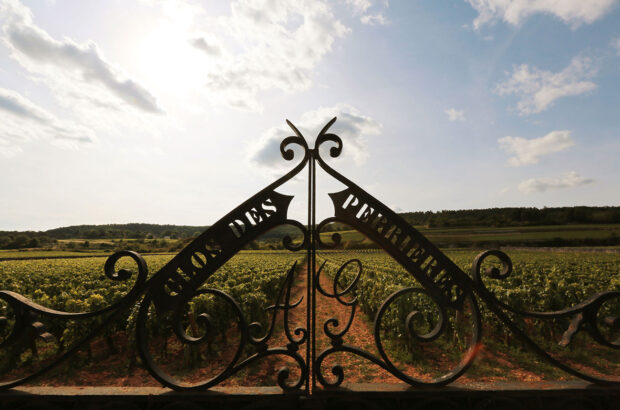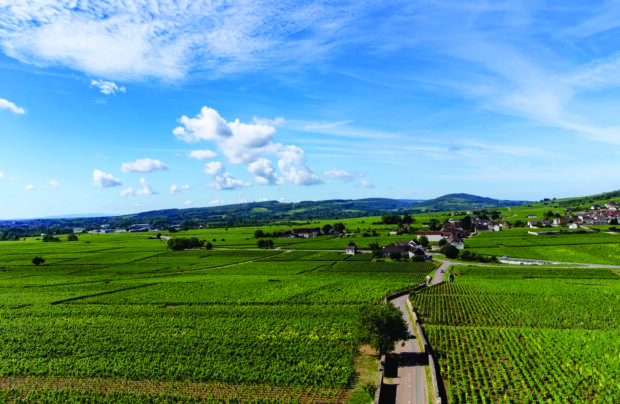Many of us fantasise about owning a vineyard and making wine. We meet two wine lovers who have made the dream come true. When Patricia Atkinson first considered leaving behind the fast-lane world of city finance, the last thing she had in mind was learning to drive a tractor. ‘If anybody had told me 10 years ago that I’d be doing this now, I’d never have believed them,’ says Atkinson, who, from 16 hectares (ha) of hillside vineyards in the Dordogne, has single-handedly built up a winery producing 70,000 bottles a year. ‘The whole thing was a bit of an accident,’ she adds. Atkinson was 40 when she gave up her job as a PR manager with an international bank in London. She and her husband James, a financial consultant, decided to turn their backs on the rat-race and opt for a rural idyll in France. ‘The children were grown up and had left home. We decided to take the plunge for a total change of lifestyle.’ They spent a year looking for a small country house and eventually found it, about 10 miles from the town of Bergerac in south-west rural France. With it came with a smallholding of 4.5 hectares, mostly made up of mediocre vines.
The couple had calculated a comfortable existence financed by James’s long-distance consultancy work, and thought they would dabble with the tiny winery as an exotic hobby. But shortly after moving in, during the glorious summer of 1990, James fell seriously ill and was hospitalised. With no job and diminishing finances, Patricia decided the only solution was to make a go of the little and all-but-abandoned winery. The obstacles, however, were just as obvious – she knew nothing about the wine business and spoke no French.
Hard graft
‘It was certainly tough, but there was no choice,’ she says bluntly. ‘My neighbours taught me basics like how to drive the tractor and operate the sprayer. Local people looked on at what I was doing with interest and curiosity, but I received nothing but kindness from them. Those were long, long days. And the pruning! I rapidly grew muscles where women aren’t supposed to have them.’
Dictionary in hand, Atkinson soaked up the advice of a local oenologist. ‘He began by asking me a very simple question: did I want to make good wine or bad? There were many things to do, beginning with very basic hygiene improvements like replacing the mud floor of the chai with cement.’ During her first year she struggled against adversity. An experienced vineyard-hand who helped out one day a week moved to a job elsewhere and her first taste of the vagaries of nature came with a late, sharp frost which killed off many of the buds. James eventually recovered his health, but decided to return to Britain. The couple are now amicably separated.
By 1992, Patricia had made her first wine – a few thousand bottles of reds from the Merlot, Cabernet Sauvignon and Cabernet Franc grape varieties, plus some dry and sweet whites. She sent a couple of pallets to a warehouse in Britain and then a friend hawked samples around restaurants and retailers. ‘It was all very amateurish,’ recalls Atkinson. Maybe it was, but it worked. Justerini and Brooks ordered the first of many consignments of sweet whites and the reds and the rosé would follow. Her Clos d’Yvigne winery had begun to blossom and Atkinson afforded herself a little respite from working in the fields. ‘It’s just amazing how many miles you have to walk every single day,’ she says. She also embarked on a series of wine-tasting courses. ‘This was a definite awakening,’ she enthuses. ‘After setting out to just get on with what had to be done, you might say it was the beginning of a passion for wine.’ Atkinson was told she had a remarkable professional nose and was subsequently invited to join the team of judges on the Bergerac appellation tasting panel. ‘It was intimidating at first, but it gave me great confidence,’ she admits.Back at the vineyard, she worked hard to build on the potential of a fine limestone-based terroir of gravel and clay. She reduced yield to improve quality, ripped out old vines and replanted new varieties. And in 1998, she bought a neighbour’s plot of 11ha; this has boosted her yearly production to 70,000 bottles – two thirds of which is now exported to the UK.
Sweet success
‘In France, I sell to one négociant, quite a number of restaurants and a sizeable volume of drive-by customers,’ says Atkinson. Her success in Britain includes appearing on the wine list at the Waterside in London – a three-star Michelin restaurant. ‘A lot of it has been by word of mouth. For example, it was after a dinner party where one of my bottles was served that I had a call from someone at Corney & Barrow.’Atkinson, who now affords herself the luxury of one full-time worker on the estate, is a modest person who winces at the suggestion that her success is remarkable. But she does have some sound advice to anyone thinking of doing the same: ‘You need determination, a passion for what you are doing and a bit of luck. One should never be smug. There’s always room for improvement.’ She says she is thoroughly content with her new life and has no plans other than to continue in the same vein. ‘On reflection, it’s a pity I didn’t begin winemaking earlier,’ she laughs.
Clos d’Yvigne Vineyard, Le Bourg 24240 Gageac et Rouillac, France. Tel: 00 33 553 22 94 40
21ha, 16 of which are planted
Annual Production: 70,000 bottles
Wines
Reds
Appellation Cotes de Bergerac Controlee
Le Rouge et Le Noir (Merlot/Cabernet Sauvignon)
Le Petit Prince(Merlot/Cabernet Franc)
Dry White
Appellation Bergerac Controlee
La Princesse de Cleves (Sauvignon Blanc, Semillon, Muscadelle)
Cuvee Nicolas (Sauvignon Blanc, Semillon, Muscadelle)
Sweet White
Appellation Saussignac Controlee
Rose
Appellation Cotes de Bergerac Controlee




